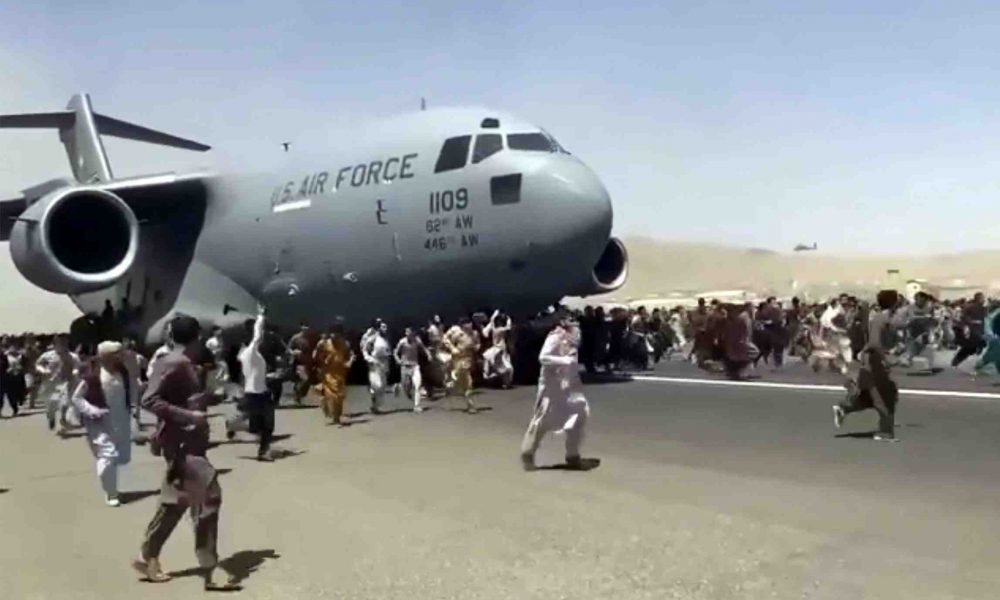[ad_1]
~~

~
For nearly two decades, Afghan journalist Zubair Babakarkhail worked in Kabul until one Sunday in August 2021 the Taliban entered the city, and Zubair’s entire life collapsed. With the help of friends and colleagues from Japan to the United States, Zubair managed to leave Afghanistan. He doesn’t expect to come back anytime soon.

It was a Sunday in August 2021 when Zubair started packing and preparing his three young children to get ready and go. The Taliban had advanced much faster than expected, and then Afghan President Ashraf Ghani had taken a helicopter to the airport and fled the country.
There was total chaos in the streets as hundreds of people rushed to the airport to leave. Zubair, his wife and three children were trapped in chaos. The clock was ticking. With the end of the mission in Afghanistan set for August 31, thousands of American soldiers, foreigners and Afghan citizens were trying to leave before the evacuation deadline expired.
Watch from Tokyo
I became more and more worried. Having worked with Zubair for many years, I knew he had to go out. But how? I felt helpless. “They could evacuate us,” he wrote to me on Sunday. I hoped so, but started to lose hope more and more as the days went by without much news.
Zubair had never shied away from complicated assignments. He had been indispensable for his in-depth knowledge, his vast network of contacts, his language skills, his good humor and his ability to navigate potentially dangerous situations while ensuring the safety of all. Not only do I owe him my life, but many others do too. And there I was sitting there waiting.
In the United States, friends took action, lobbying politicians, the military, and anyone who seemed helpful.
Hours turned to days, as Zubair waited for a phone call directing him to meet the right person to escort him to the airport. “We slept with our shoes on,†says Zubair. He wanted to be ready to go.
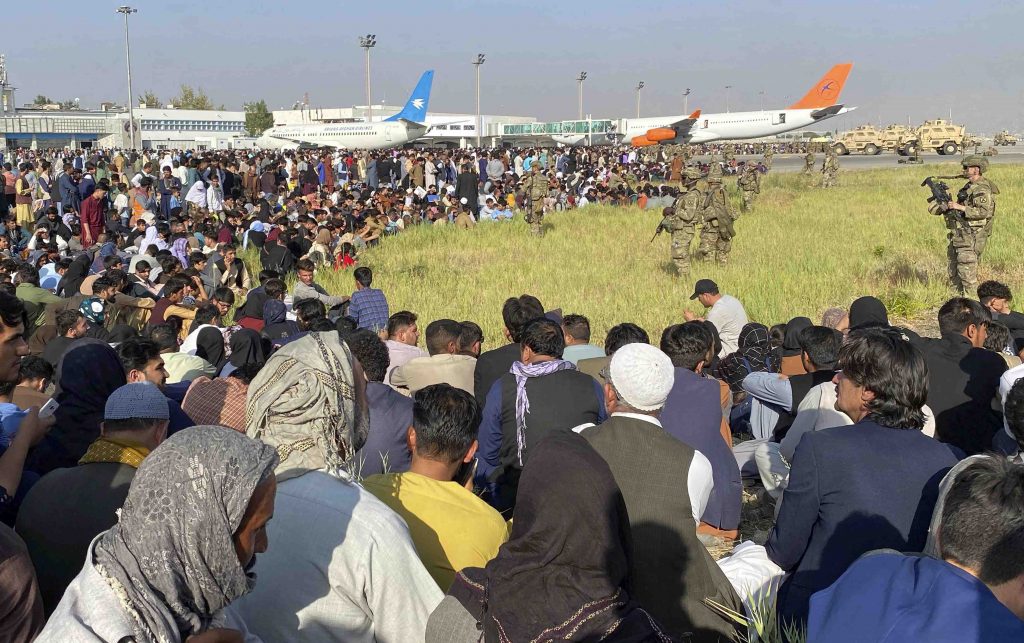
He and his family waited days and nights outside the airport, surrounded by thousands of people desperate to leave as well. After many false starts and failed attempts, he finally got lucky.
Ten days after the capture of Kabul by the Taliban, Zubair and his family were about to leave. Just hours after the family slipped through the heavily guarded airport gate, a suicide bomber killed more than 180 people.
Have hope and friends
“I didn’t know it could take days or months to leave Afghanistan, but I was trying hard, and so many other people were trying hard,†he said. Friends and reporters in the US, Japan, Brazil, the Netherlands and the UK were all trying to find ways to get Zubair and his family out.
Ultimately, after days of excruciating waiting, there was good news.
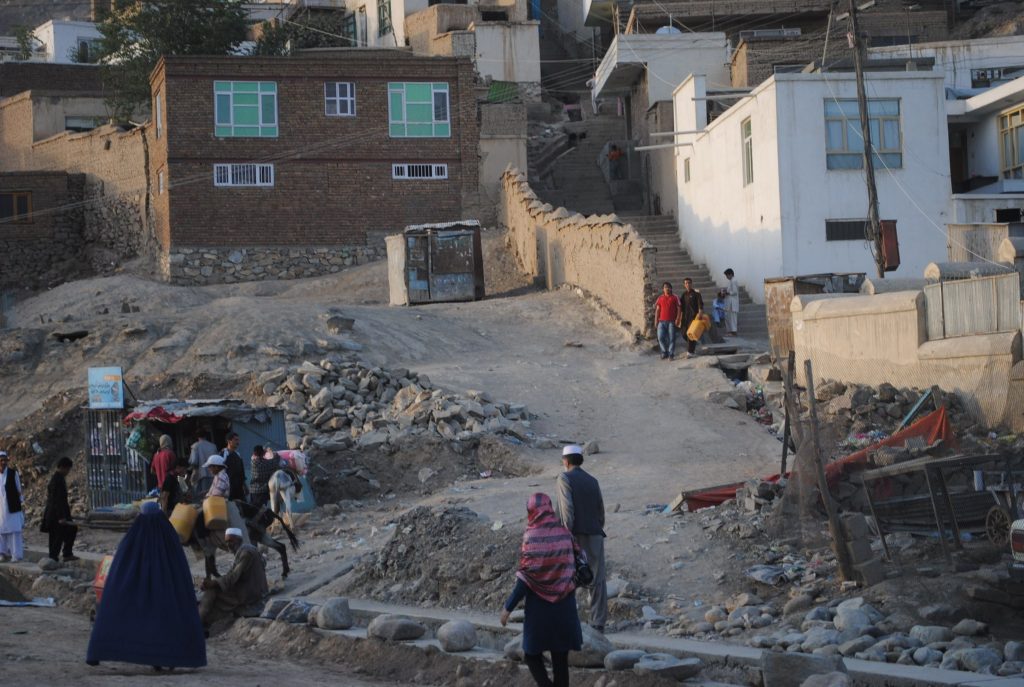
Ten days after the capture of Kabul by the Taliban, I woke up to a message from a Japanese colleague and mutual friend of Zubair. “You will wake up with good news today,†we read. A few hours later, there was a text from Zubair: “I’m in. No worries.”
Zubair who worked for the US government publication Stars and stripes and many other foreign media companies for years, it was pretty clear that it was no longer safe for him to stay. He hardly believed in the Taliban’s assurance that they wanted everyone to stay and would not seek revenge. Zubair knew better.
“There is one thing the Taliban leadership is saying in public and another thing the fighters are doing on the ground,” he explains. Now disturbing videos circulating from Afghanistan show Taliban fighters driving house to house beating up people who worked for the Afghan government or foreign forces. It seems that repression and fear are all the Taliban can offer Afghan citizens.
Zubair is now safe in a military camp in the United States, awaiting relocation. His children are missing in Kabul, he says, but “not 24/7”. Zubair hopes to move to Pennsylvania in a few weeks and settle there.
Her goal is to find new job opportunities while continuing to report on Afghanistan. He looks happy, even though he has left so much behind him. His home, brothers, sisters and most of his family are still in Kabul.
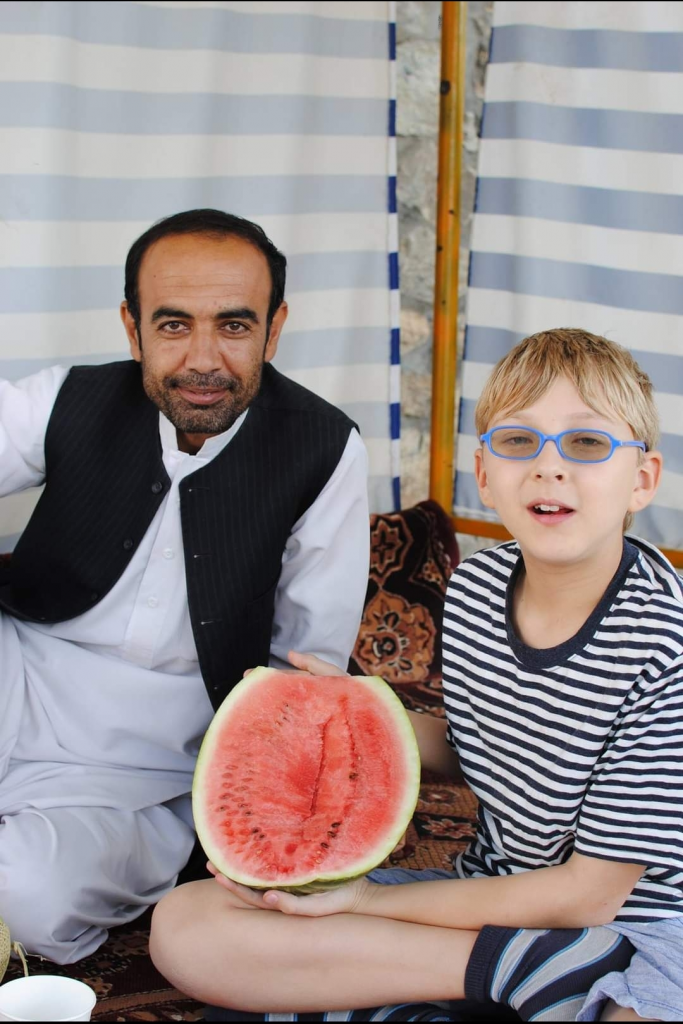
Second time refugee
This is the second time that Zubair has found himself a refugee. His family emigrated to Pakistan after the Soviet Union invaded Afghanistan in 1979.
Zubair, who was a small child at the time, grew up in a foreign country and did not return home until after the Taliban regime ended in 2002. He never wanted to leave again. He built a house and raised a family. Now all he has is a small backpack with a few things.
When the Taliban came to power in 1996, Zubair was a teenager. He still remembers the time quite well: “The situation was very different from today. There was a raging civil war, people were hungry. The Taliban brought order to life through strict Sharia law, where thieves were cut off from hands and public executions took place. ”
This time, peace through draconian punishments is far less desirable for the millions of Afghans who have lost their jobs and businesses.
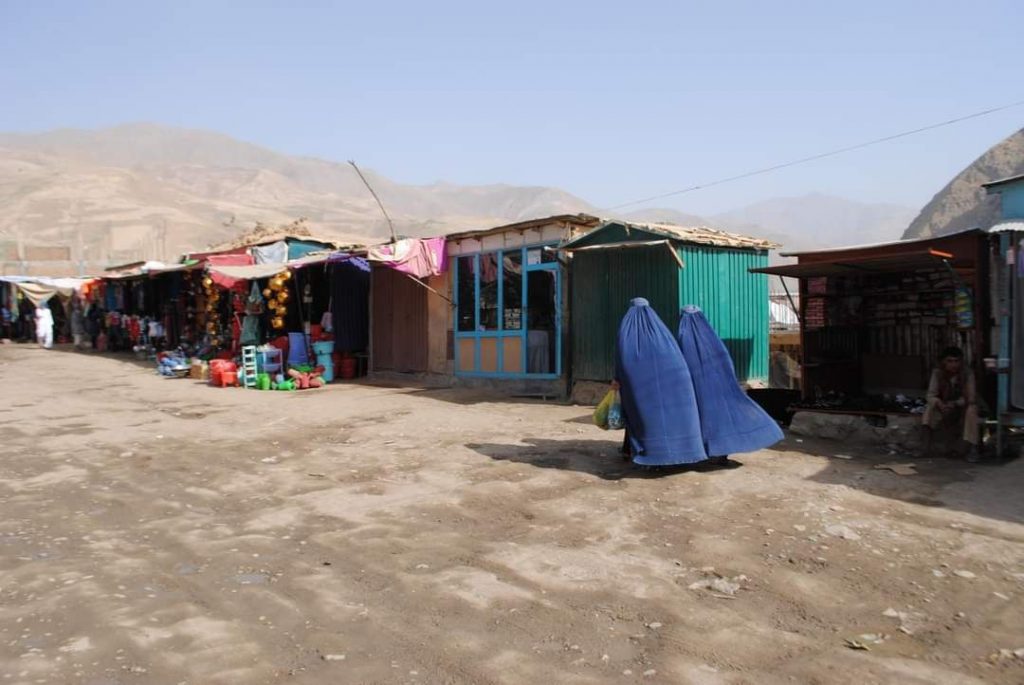
The Taliban cannot run the economy
Zubair warns that a humanitarian crisis is already emerging: “People are selling their goods on the streets to buy food. The Taliban are religious people. The last time they were in power they couldn’t run the economy and they didn’t care. This time it’s the same.
RELATED: Helping the Taliban in Afghanistan is financing a failed state with Japanese taxpayers’ money
In the absence of financial assistance in Afghanistan, many people have lost their jobs and wages have gone unpaid, while the prices of food and other essentials skyrocket. Borders and airports are still closed, halting exports and imports of goods.
The United Nations is sending food aid, but it is a pittance. Soon the whole country could be plunged into darkness, literally: The Taliban government has failed to pay the country’s US $ 90 million electricity bill with Central Asian countries supplying most of the electricity. electricity from Afghanistan.
Factionalism within the Taliban movement, combined with ongoing conflicts, adds another layer of instability. The countries neighboring Afghanistan do not seem willing to intervene. Iran, Pakistan, Russia, China, Tajikistan and Uzbekistan all have different, often divergent interests, and they can’t agree on much. How long before Afghanistan separates again?
Zubair doesn’t know when he’ll be back. Not anytime soon, he thinks. He wants to settle in the United States, start a normal life and have a good job.
Commercial flights to Kabul, he notes, have not resumed. “Nobody wants to go. Everyone wants to leave.
RELATED:
Author: Agnès Tandler
[ad_2]

